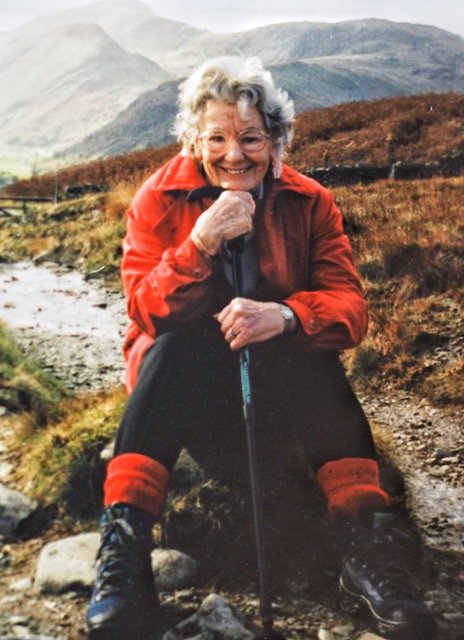2023 BT PRIZE SPEECH
Hello everyone, my name is Matt Fry. I’m the Chair of Judges for the 2023 Boardman Tasker Award for Mountain Literature. I am honoured to be here this evening. As part of Joe Tasker’s extended family, I remember the occasions that I would attend this awards ceremony, as a child with my grandmother, back in its early days at the Alpine Club. Being here this evening for the 40th anniversary is a real privilege.
I’m here this evening to present the shortlist of five outstanding books that celebrate the spirit of adventure, exploration and discovery in the high places of the world. This is also a changing world, and as we celebrate the winner of this prestigious award, it is important to reflect on the challenges that we face as a global community. The threat faced by the environment is one of the most pressing issues of our time, and we must all do our part to protect it. The mountain environment, in particular, is a fragile ecosystem that requires our attention and care. In addition to environmental concerns, we are also facing a challenging political situation around the world. The climate crisis, economic inequality, and social unrest are just a few of the issues that loom large at this time. The Boardman Tasker Award represents, perhaps more than any other literature award, the opportunity not only for escapism, but to embrace the power of literature to inspire change. This is a theme that we kept in mind throughout the judging process. All of the judges finished this experience feeling incredibly hopeful for the future of writing in this fascinating field.
I’m visiting Kendal from London, a city with a distinct lack of mountains, which is one reason I loved escaping into all 21 of the books submitted to the prize this year.
As someone who works in the publishing industry, I read a lot of books but the quality of all the submissions this year was so impressive, and not one fell into the abyss of the dreaded slush pile. Each had their merits, but from the outset, all three of us judges were agreed that in this special year for the Boardman Tasker prize, we wanted to push the boundaries of modern mountain literature. Indeed, as Peter Boardman memorably said ‘the only true failure would be to not explore at all’.
I want to thank my fellow jury members, Jo Croston, who’s travelled from Canada to be here this evening, and Paul Pritchard, who sadly couldn’t make the trip from Tasmania, for being such good companions on this reading expedition. Thank you also to Steve and Janet Dean for all their amazing efforts in continuing to make this award such an important event.
Together, we managed to navigate our way to the most remote corners of the world – all without having to leave the house.
The shortlist didn’t come easily and there was plenty of lively and good-natured debate between us. Each time a package full of books dropped through the letterbox, in our various corners of the globe, we would find ourselves transported anew to summits, peaks and valleys.
We explored the melting world of the High Himalaya with memorable narratives from Clive Rowland in his book, The Ogre, and James T. Lester’s Return to the Scene of the Climb.
There was the beautifully designed and packaged One Man’s Legacy, introducing us to the legendary Scottish climber Dr. Tom Patey. We all agreed we’d learnt a new word (or is it a phrase?) in ‘SHRALPINISM’, thanks to author Jeremy Jones, and all discovered an urge to visit Bulgaria’s magical-sounding Mesta Valley, courtesy of Kapka Kasabova’s Elixir. We also all agreed that none of us would ever look at water in quite the same way, after reading Amy Jane Beer’s mesmerising book, The Flow.
The five books we selected for this year’s prize are not only remarkable for their literary merit, but also for their contribution to the culture and history of mountaineering and its related disciplines. Each book, in some way, was also selected with an eye on the future, and with a nod to the journey that this award has taken so many on since its conception. From the outset of our judging journey, we always wanted to keep in mind the ethos that ran through Peter and Joe’s own writing, that of always looking ahead, pushing boundaries and taking risks, and we hoped they would be pleased to see five equally worthy and boundary-pushing titles selected in this, the 40th anniversary of the award. Without further ado, let me introduce you to the shortlisted titles and their authors.
First, we have Sherpa: Stories of Life and Death from the Forgotten Guardians of Everest by Pradeep Bashyal and Ankit Babu Adhikari. This book is a rare and intimate portrait of the Sherpa people, who have been the backbone of countless expeditions to the highest peaks in the Himalayas. Sherpa raises important questions about the future of this proud and resilient people. It is a book that challenges our stereotypes and assumptions, which is something that we felt strongly about when judging.
Next, we have Unravelled: A Climber’s Journey Through Darkness and Back by Katie Brown. Katie takes us on a journey of recovery and redemption, finding new meaning and purpose in her life through climbing. As my fellow judge Paul Pritchard remarked, there is almost an element of voyeurism in the book – the reader cannot help but turn the page to find out where the author’s journey would lead her. Unravelled is a one-of-a-kind climbing book, and struggles with addiction, control and eating disorders are more common in climbing than we would like to think. This book is not only a timely testament to this truth, but a visceral rendering of the author’s life.
Next, we have The Hidden Fires: A Cairngorms Journey with Nan Shepherd by Merryn Glover. We all enjoyed retracing Nan Shepherd’s footsteps in the Cairngorms and appreciated a fresh and contemporary perspective on Shepherd’s vision and voice. The Hidden Fires is a book that enriches and deepens our understanding and appreciation of one of the most original and influential nature writers of the 20th century.
Next, is British Mountaineers by Faye Rhiannon Latham. We loved the bold, risk-taking and thoroughly contemporary take on a classic text of British mountaineering. Throughout our judging we kept remarking how we felt we had been taken on a dream-like tour of F.S. Smythe’s original 1942 work. This unique book is quite unlike anything submitted to the prize before.
Finally, we have Closer to the Edge by Leo Houlding. This book is a thrilling and candid account of the life and adventures of one of the most daring and charismatic climbers of his generation. This was a roller-coaster ride of highs and lows, successes and failures, joys and sorrows.
Ladies and gentlemen, these are the five books that have made it to the shortlist of the 2023 Boardman Tasker Award for Mountain Literature. Each of them is a worthy contender for the prize, and a testament to the quality and diversity of mountain literature today. I congratulate the authors and the publishers for their excellent work, and I thank them for sharing their stories with us.
And so, the moment you have all been waiting for. In a unanimous decision, the 2023 Boardman Tasker prize goes to….
Unravelled by Katie Brown














